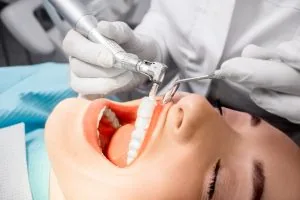
The recent death of a teenager during a common surgical procedure has prompted a national conversation about the removal of wisdom teeth (third molars). Deaths like this – hypoxia from oxygen deprivation – are rare, but serious risks are inherent in any surgical procedure.
Can You Die from Wisdom Teeth Removal?
The probability of death from wisdom teeth extraction is very low. Research by the National Institute of Health on death rate of Dental Anaesthesia, examining over 20 studies from 1955 onwards, reports 218 deaths in 71,435,282 dental procedures, a mortality rate of 1 in 327,684, or 3 per million. Common risks of wisdom teeth removal are infection, nerve damage, and dry socket.
Ten million wisdom teeth are extracted in the U.S. each year. While wisdom tooth removal is undoubtedly necessary for some people, many oral surgeons advocate for the removal of the third molars to prevent potential future infections or tooth damage. Yet, studies suggest that less than 12% of wisdom tooth impactions lead to infections or damage to adjacent teeth. For comparison, about 1 in 15 people will get appendicitis – but no medical associations recommend preventative appendectomies.
For most of us, wisdom tooth removal – regardless of its necessity – is a week or two of pain and discomfort. Many people believe that because getting one’s wisdom teeth out is common, it is safe. In most cases, patients are given unsubstantiated information that might, in some circumstances, invalidate their informed consent of the potential risks of the surgery. Dr. Jay Friedman wrote in the American Journal of Public Health:
“At least two thirds of these extractions, associated costs, and injuries are unnecessary, constituting a silent epidemic of [dentist-induced] injury that afflicts tens of thousands of people with lifelong discomfort and disability,” See the full text of his article: The Prophylactic Extraction of Third Molars: A Public Health Hazard.
Dangers in wisdom tooth removal
- Risks and potential complications of anesthesia, including heart attack or stroke
- Infection in the extraction site or subsequent stitches
- Lingual nerve damage, which can result in permanent numbness, loss of taste, and other mouth and tongue problems (read more about lingual nerve damage here)
- “Dry socket”, a painful inflammation in the extraction site
- Permanent loss of feeling in the lip, tongue, or cheek which never goes away, ranging from complete numbness to “pins and needles” comparable to when your foot or hand falls asleep
- Bone splinters or root fragments can be left behind in the gum tissue
- Jaw fracture can occur if the surgeon removes part of the bone to access the impacted tooth
- Damage to existing dental work or to the structures of adjacent teeth
If your doctor or dentist recommends wisdom tooth removal, make sure you educate yourself on the procedure, and learn about your Oregon dentist or oral surgeon’s experience and record for the surgery.
Update: April 5, 2012- TODAY has featured the story of the Maryland teen who died last year during a routine wisdom tooth removal.
